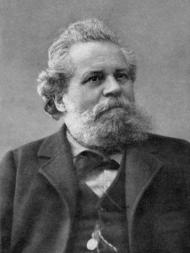The idea of a Welsh colony in South America was put forward by Professor Michael D. Jones, a Welsh nationalist non-conformist preacher based in Bala who had called for a new "little Wales beyond Wales". He spent some years in the United States, where he observed that Welsh immigrants assimilated very quickly compared with other peoples and often lost much of their Welsh identity. He proposed setting up a Welsh-speaking colony away from the influence of the English language. He recruited settlers and provided financing; Australia, New Zealand and even Palestine were considered, but Patagonia was chosen for its isolation and the Argentines' offer of 100 square miles (260 km²) of land along the Chubut River in exchange for settling the still-unconquered land of Patagonia for Argentina.
Towards the end of 1862 Captain Love Jones-Parry and Lewis Jones (after whom Trelew was named) left for Patagonia to decide whether it was a suitable area for Welsh emigrants. They first visited Buenos Aires where they held discussions with the Interior Minister Guillermo Rawson then, having come to an agreement, headed south. They reached Patagonia in a small ship named the Candelaria, and were driven by a storm into a bay which they named "Porth Madryn" after Jones-Parry's estate in Wales. The town which grew near the spot where they landed is now named Puerto Madryn. On their return to Wales they declared the area to be very suitable for colonisation.
The permanent European settlement of the Chubut Valley and surrounding areas began on July 27, 1865 when 153 Welsh settlers arrived aboard the converted tea-clipper Mimosa. The Mimosa had cost £2,500 to hire for the voyage and convert to passenger use, and the fare from Liverpool to Patagonia was £12 for adults and £6 for children, although anyone willing to travel was taken on the journey regardless of ability to pay. The Mimosa settlers, including tailors, cobblers, carpenters, brickmakers, and miners, comprised 56 married adults, 33 single or widowed men, 12 single women (usually sisters or servants of married emigrants), and 52 children. There were few farmers, which was rather unfortunate particularly when they discovered that the attractions of the area had been oversold and they had landed in an arid semi-desert with little food; they had been told that the area was like lowland Wales. At the coast there was little drinking water, and the group embarked on a walk across the parched plain with a single wheelbarrow to carry their belongings. Some died and a baby, Mary Humphries, was born on the march. John Williams was the only colonist with any form of rudimentary medical skill.
Once they reached the valley of the Chubut River, their first settlement was a small fortress on the site which later became the town of Rawson, now the capital of Chubut province. The first houses here were washed away by a flash flood in 1865, and new houses were constructed. The floods also washed away crops of potatoes and maize. The rainfall in the area was much less than the colonists had been led to expect, leading to crop failures.

